How is Heroin Addiction Treated in South Carolina?
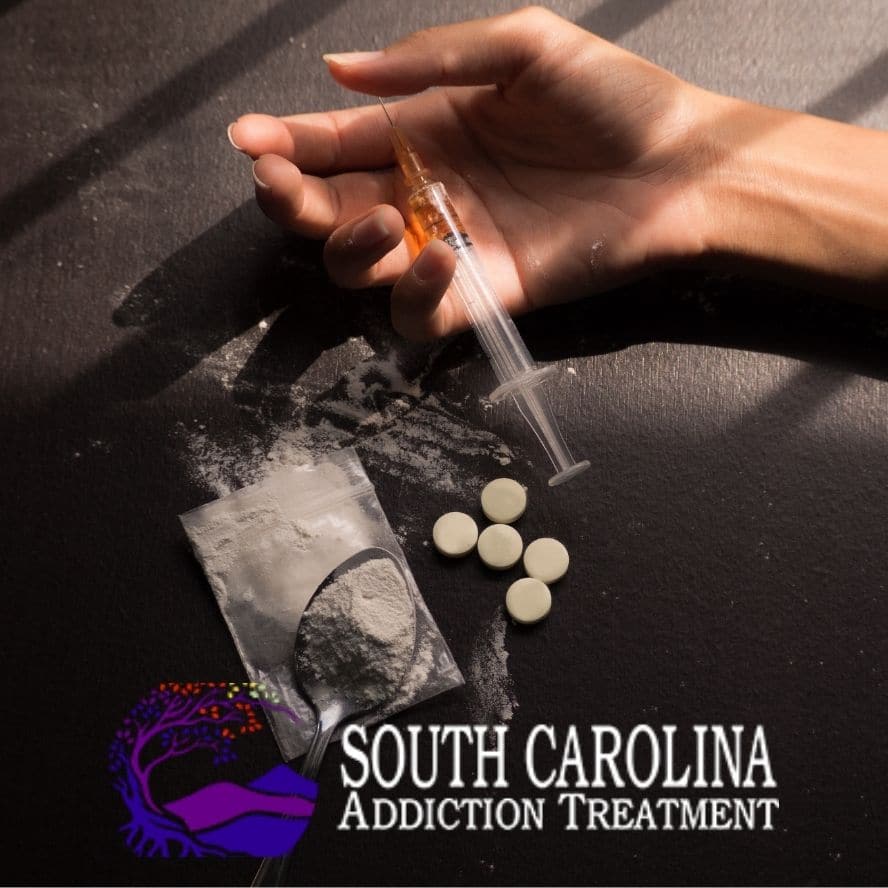
Medically Verified: 2/1/24
Medical Reviewer
Chief Editor

All of the information on this page has been reviewed and verified by a certified addiction professional.
Heroin is an extremely powerful opioid drug that is a leading cause of the opioid epidemic America is facing today. Unfortunately, it is so addictive that getting sober is extremely challenging. People find themselves battling flu-like withdrawal symptoms, incessant drug cravings, and psychological urges to get high. Here at South Carolina Addiction Treatment, we apply a multidisciplinary approach to heroin addiction treatment involving pharmacological support, behavioral therapy, and aftercare services.
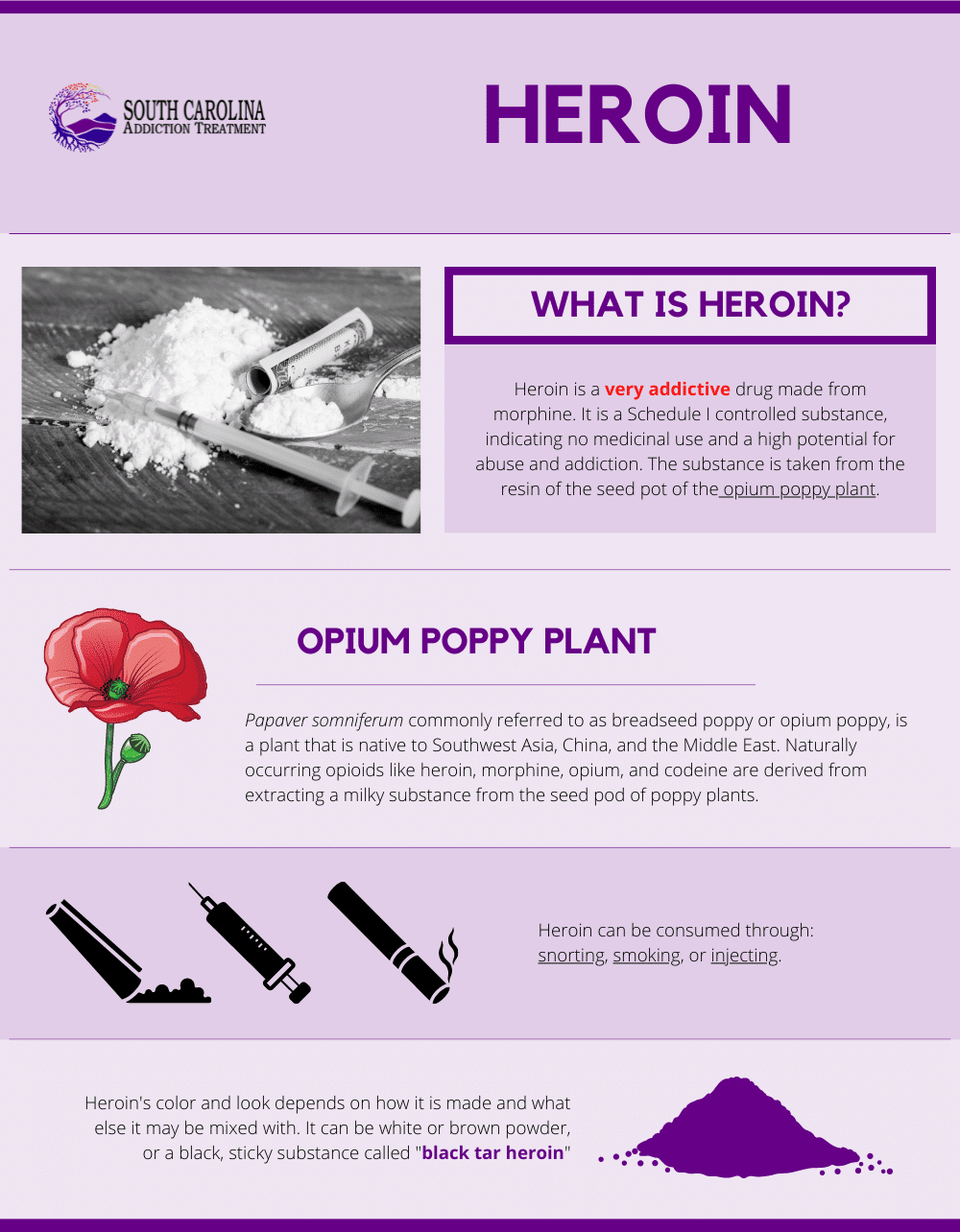
Medications Used to Treat Heroin Dependence and Addiction
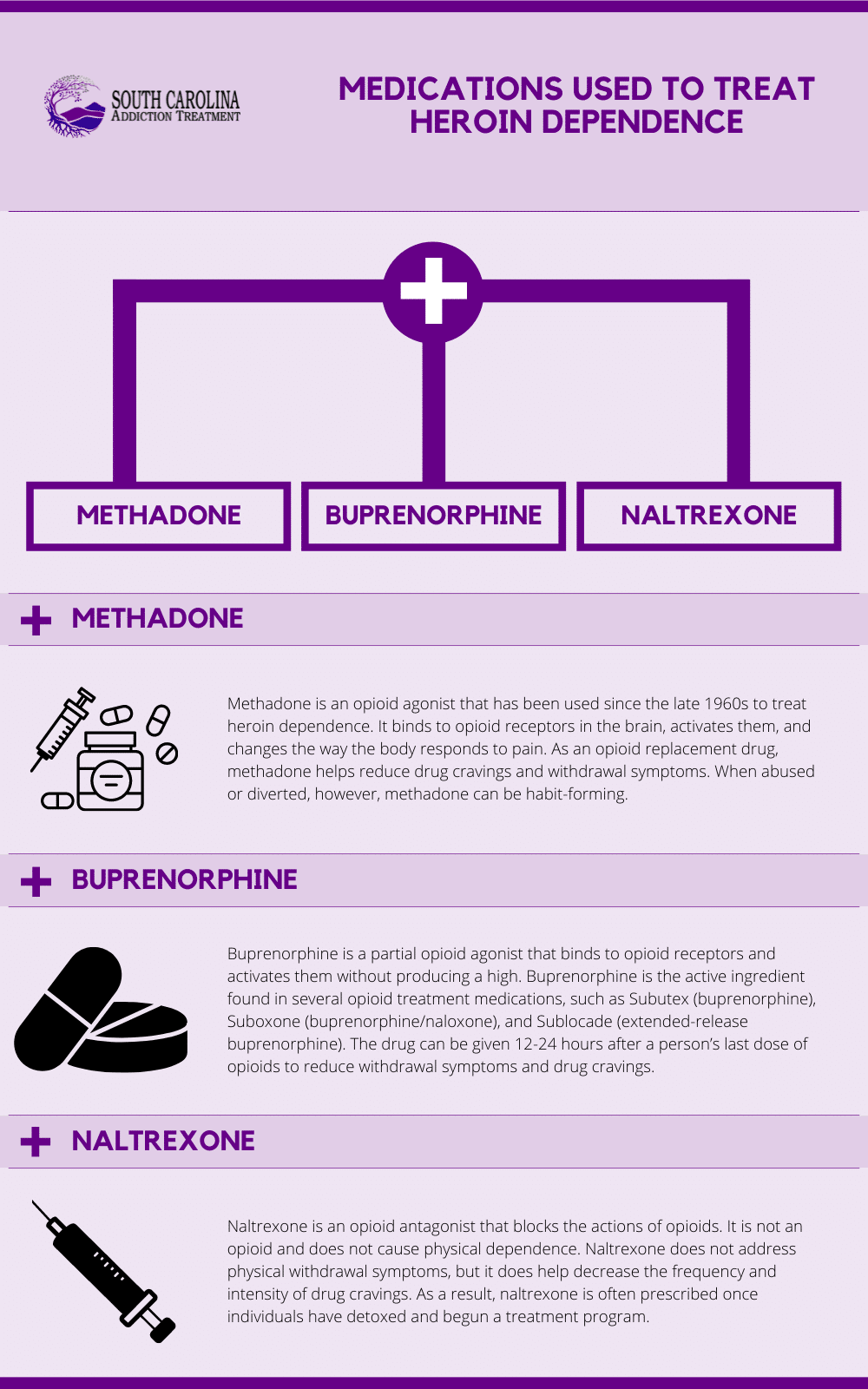
Prior to the last two decades, heroin addiction was treated solely with behavioral therapy and 12-step facilitation. However, clinical studies have shown that pharmacological treatment of heroin addiction can help increase retention in treatment programs while decreasing illegal drug use, criminal activity, and disease transmission.[1]
Upon quitting opioids, people experience flu-like withdrawal symptoms (muscle pain, chills, sweats, diarrhea, nausea, and vomiting). These symptoms may be severe and increase a person’s risk of relapse. Medications, however, can be extremely helpful in minimizing withdrawal symptoms and reducing drug cravings. Thus, medications can be used during detox and during treatment to help individuals overcome heroin addiction.
The FDA has approved three medications to treat opioid use disorder:[2]
- Methadone
- Buprenorphine
- Naltrexone
Methadone (Dolophine or Methadose)
Methadone is an opioid agonist that has been used since the late 1960s to treat heroin dependence. It binds to opioid receptors in the brain, activates them, and changes the way the body responds to pain. As an opioid replacement drug, methadone helps reduce drug cravings and withdrawal symptoms. When abused or diverted, however, methadone can be habit-forming.
Buprenorphine (Subutex, Suboxone, Sublocade)
Buprenorphine is a partial opioid agonist that binds to opioid receptors and activates them without producing a high. Buprenorphine is the active ingredient found in several opioid treatment medications, such as Subutex (buprenorphine), Suboxone (buprenorphine/naloxone), and Sublocade (extended-release buprenorphine). The drug can be given 12-24 hours after a person’s last dose of opioids to reduce withdrawal symptoms and drug cravings.
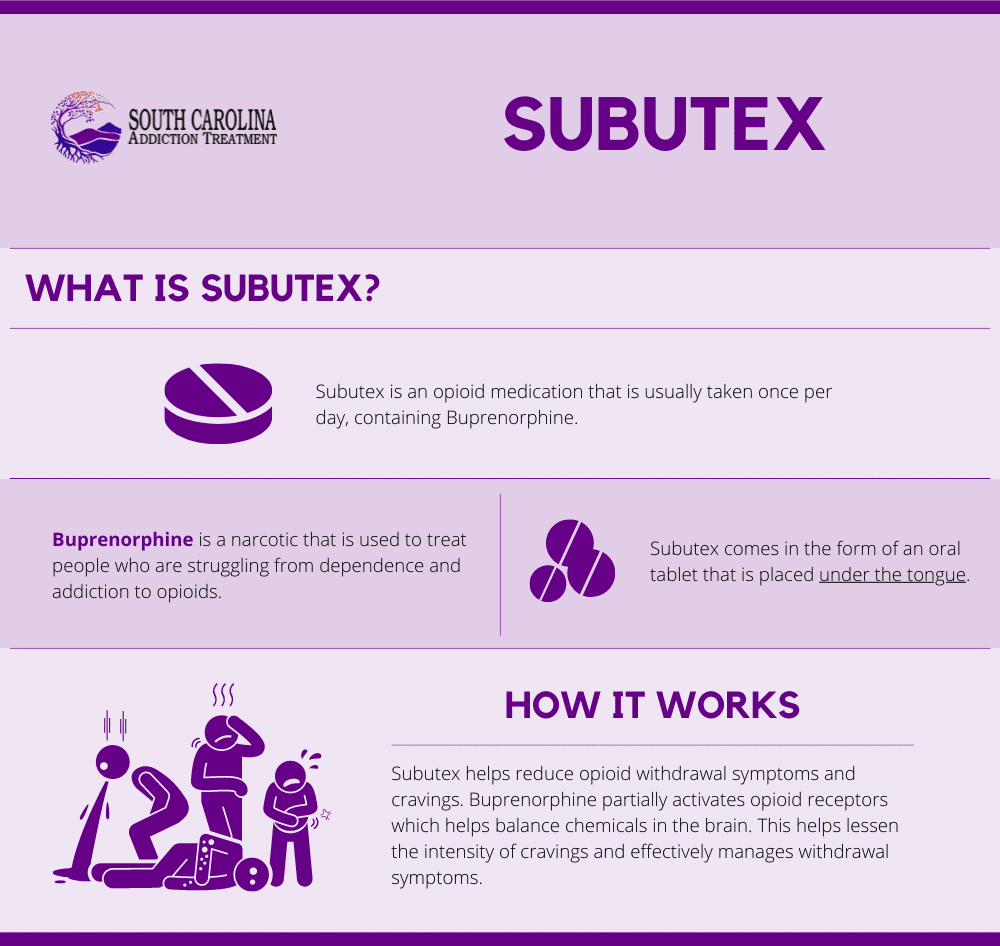
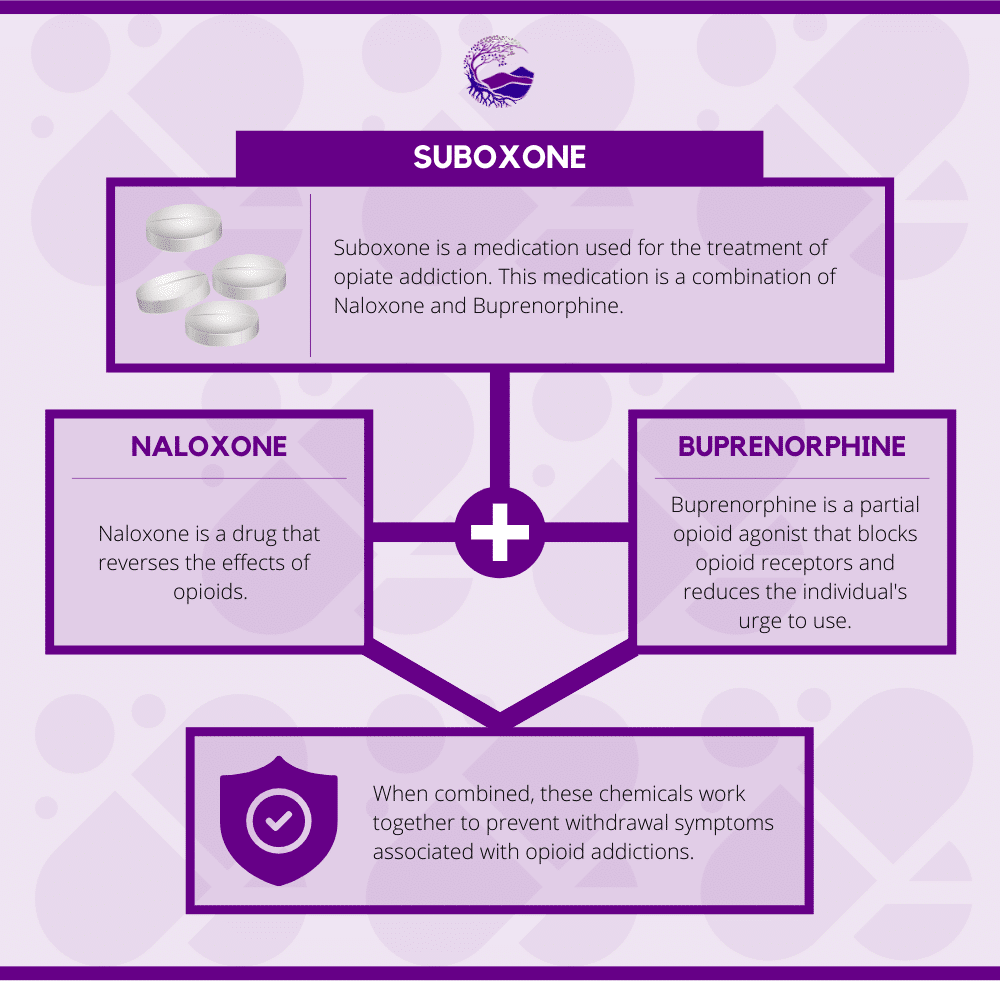
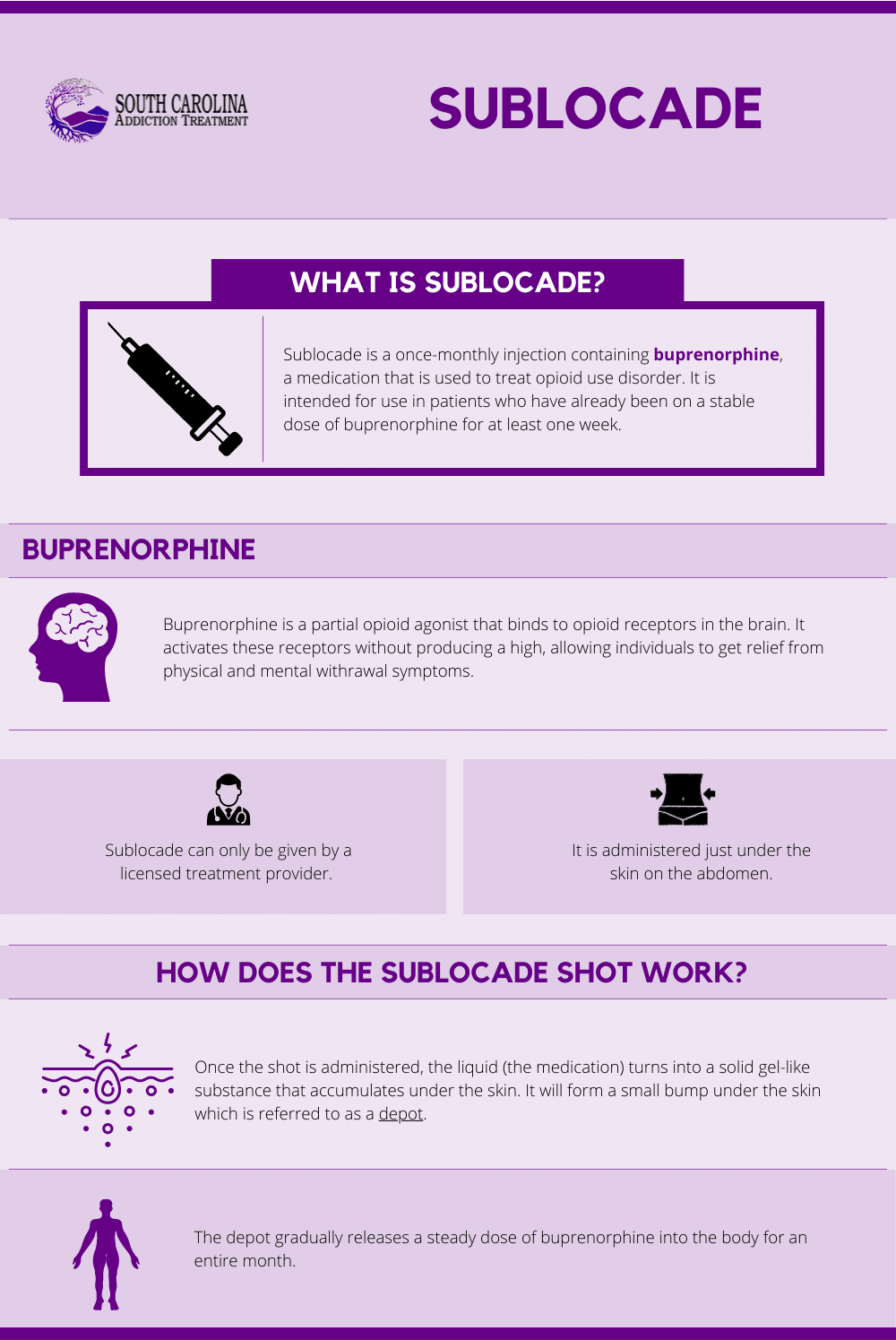
Naltrexone (ReVia or Vivitrol)
Naltrexone is an opioid antagonist that blocks the actions of opioids. It is not an opioid and does not cause physical dependence. Naltrexone does not address physical withdrawal symptoms, but it does help decrease the frequency and intensity of drug cravings. As a result, naltrexone is often prescribed once individuals have detoxed and begun a treatment program.
This drug is found in two medications: ReVia and Vivitrol. ReVia is a tablet that is taken once daily while Vivitrol is a once-monthly injection.
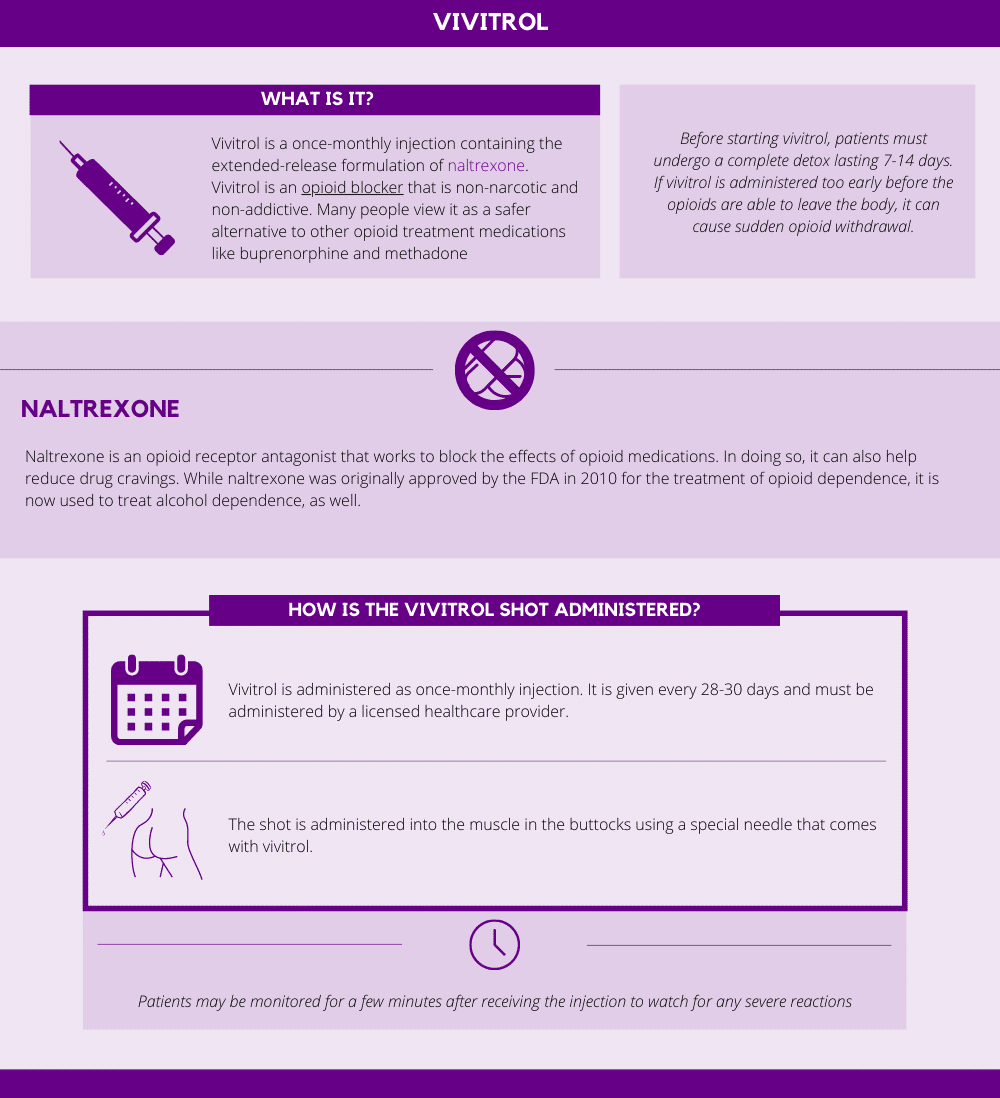
Behavioral Therapy for Heroin Addiction Treatment and Recovery
There are many different behavioral therapies that are effective at treating heroin addiction. Two of the most effective are:
- Contingency management (CM) – Uses a voucher or reward-based system to give positive reinforcement for negative drug tests and lifestyle changes.
- Cognitive-behavioral therapy (CBT) – Designed to examine and modify a person’s beliefs, expectations, and behaviors related to substance abuse. CBT also helps increase life skills, coping mechanisms, and more.
Other therapeutic approaches which may be used during heroin addiction treatment in South Carolina include:
- Group processing therapy
- Family systems therapy
- Individual counseling
- Trauma therapy
- Holistic therapies (art, yoga, meditation, and more)
What to Expect During Heroin Addiction Treatment in South Carolina
Heroin treatment programs combine pharmacological approaches with behavioral therapy to help individuals get sober and stay sober. Here is what patients can expect when they go to a heroin rehab in South Carolina.
Medical Detox
The first step of any drug treatment program is detox. Heroin withdrawal comes with an exceptionally high risk for relapse due to the severity and comfortability of symptoms. Patients who detox in a medical facility are under constant medical care, given medications to reduce their symptoms, and are able to prevent severe outcomes. Heroin detox may last 3-7 days.
Individualized Care
Once detox is complete, patients move on to the rehab portion of care. This is when the real work begins. Medications and behavioral therapies are combined in an approach referred to as medication-assisted treatment (MAT). According to SAMHSA, MAT is a highly effective clinical approach that provides the most individualized care.[3]
All therapies are specified to meet each patient’s unique needs. Therapy helps individuals become more aware of their thought patterns, develop coping skills, and learn about the recovery-related resources that are available to them. When these therapies are custom-tailored to meet a patient’s needs, they are more effective and provide better outcomes for the patient.
Aftercare Support
For treatment to be effective, it must tend to a person’s specific needs, last long enough, and combine medical support with behavioral therapy.[4] However, even with all of these aspects of effective treatment, a brief stay at a South Carolina rehab center is rarely enough to provide individuals with the basis for long-term recovery. Instead, recovery should extend beyond the walls of a treatment center.
Towards the end of a person’s stay, he or she will meet with a substance abuse counselor to discuss aftercare support services. Aftercare services, such as sober living, alumni programs, and 12-Step meetings can reinforce the skills learned in rehab and make sure individuals have ongoing support.
Start Heroin Addiction Treatment in South Carolina Today
Here at South Carolina Addiction Treatment, our family-owned and operated facility offers all of the services needed for people to overcome heroin addiction. Between medical detox, residential treatment, and outpatient programming, our continuum of care supports individuals throughout their recovery journey.
If you or a loved one are looking for heroin addiction treatment in South Carolina, give us a call today.
References:
- https://www.drugabuse.gov/publications/research-reports/heroin/what-are-treatments-heroin-use-disorder
- https://www.samhsa.gov/medication-assisted-treatment/medications-counseling-related-conditions
- https://www.samhsa.gov/medication-assisted-treatment
- https://www.drugabuse.gov/publications/principles-drug-addiction-treatment-research-based-guide-third-edition/principles-effective-treatment

